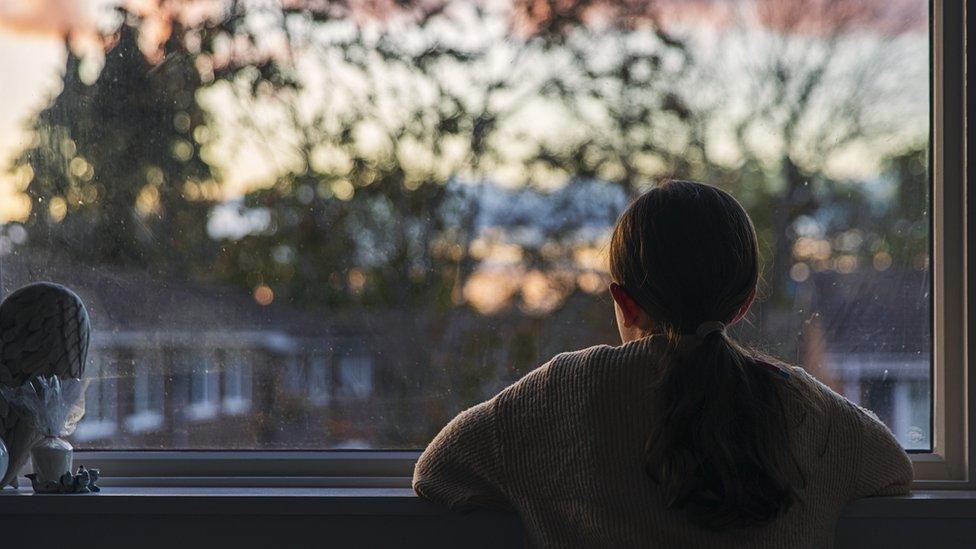Child inequalities widen as a result of pandemic
- Published

Children in the north of England have poorer health and educational outcomes
Inequalities between children in the north of England and those in the rest of the country have worsened during the pandemic, a report says.
Nearly all children have suffered, but researchers said those in the North East, North West and Yorkshire and the Humber had poorer educational outcomes.
The Child of the North report, external warned the inequalities would cost billions and increase poverty in the future.
The government said it was supporting pupils to make up for lost learning.
Academics found children in the north missed more schooling in lockdown and received less work per day compared with peers elsewhere.
They said although inequalities existed before Covid, the pandemic had made the situation worse, with children in the north being "disproportionately affected" and "experiencing mental health difficulties".
Researchers said this was a particular difficulty faced by boys aged five to 10 in all areas of the north and girls aged five to 10 in Yorkshire and the Humber.
It is projected that the loss of education will hit their lifetime incomes as they move into work, authors said.
The report highlighted that austerity measures introduced between 2010 and 2018 had impacted children in the north disproportionately, with deeper cuts to children's services than the rest of England.
David Taylor Robinson, professor of public health and policy at the University of Liverpool and co-lead author of the report, said: "Children growing up in the north of England get a bad deal.
"Due to poverty and lack of investment, their outcomes are worse across the board - from risk of death in childhood, to obesity, mental health, and education, and the pandemic has made the situation worse."
Recommendations have been put forward to tackle the inequalities, including a call for greater investment in welfare, health and social care systems that support children's health.
Another co-lead author, Kate Pickett, professor of Epidemiology at the University of York, said levelling up the north "must be as much about building resilience and opportunities for the Covid generation" as it was building roads and railways.
A Department for Education spokesperson said £5bn was being invested in "high quality tutoring, world class training for teachers and early years practitioners" as well as "additional funding for schools, and extending time in colleges by 40 hours a year".
The spokesperson added: "We're supporting the most disadvantaged, vulnerable or those with the least time left in education - wherever they live - to make up for learning lost during the pandemic."

Follow BBC Yorkshire on Facebook, external, Twitter, external and Instagram, external. Send your story ideas to yorkslincs.news@bbc.co.uk, external.
Related topics
- Published28 March 2019
